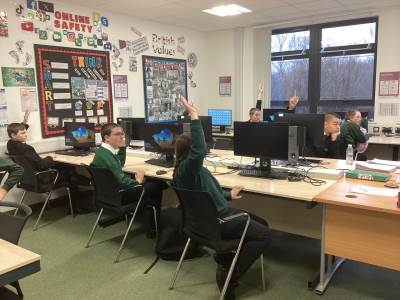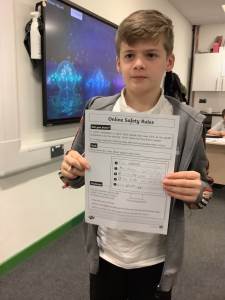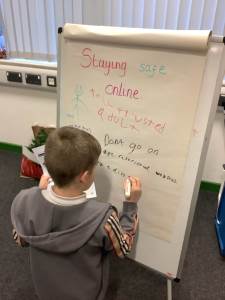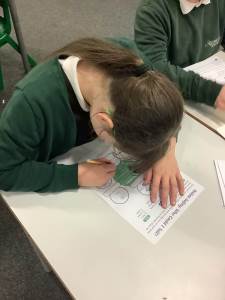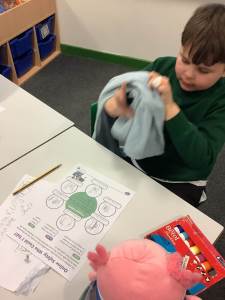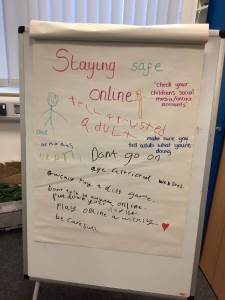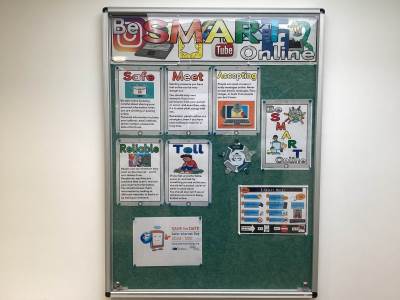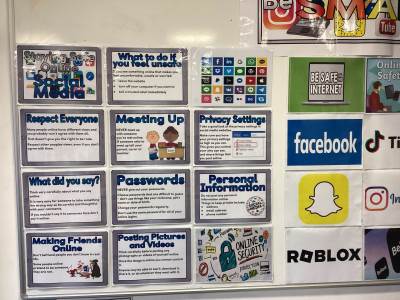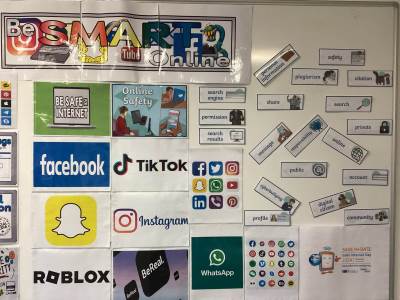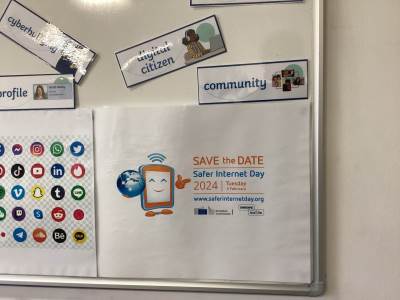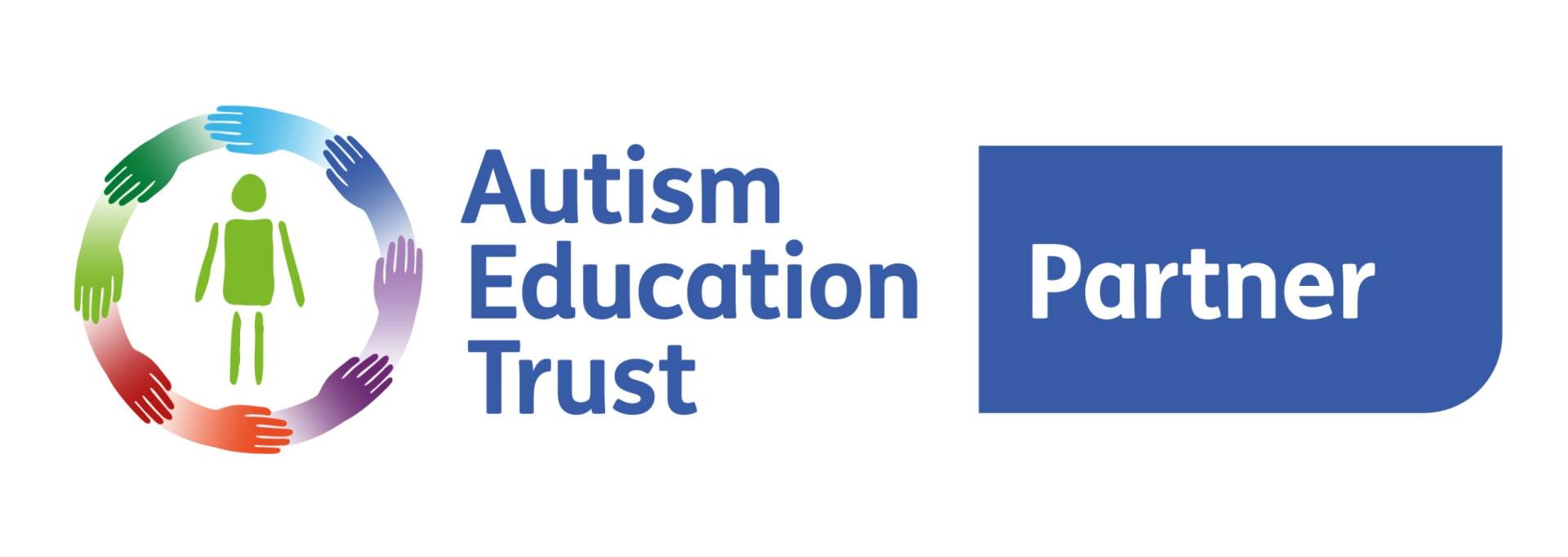Secondary Computing

Whether you want to uncover the secrets of the universe, or you want to pursue a career in the 21st century, basic computer programming is an essential skill to learn.
- Stephen Hawking (Theoretical Physicist, Cosmologist, and Author)
At Hollinwood Academy, our computing curriculum aims to provide a balanced and engaging approach to teaching computational thinking, ICT, and computer science. Our curriculum is designed to appeal to all children and young people, ensuring that they develop a deep understanding of the subject.
Our curriculum is designed to challenge and stretch our children and young people, encouraging them to reach their full learning potential while addressing their individual learning, social, emotional needs, and interests. We strive to instil a sense of enjoyment and appreciation for technology, inspiring our children and young people to utilise its capabilities creatively for communication, management, organization, and collaboration purposes.
In doing so, we equip our children and young people at Hollinwood Academy with the skills and knowledge they need to navigate the digital world confidently and make the most of the opportunities it presents.
Computing Lessons at Hollinwood Academy
At Hollinwood Academy, our goal is to ensure that all children and young people succeed and achieve in computing. We strive to teach this subject in the most creative ways possible, utilising the power of iPads and computing software.
Through a combination of innovative teaching tools and the use of everyday examples, we are determined to help our learners accomplish their goals. We firmly believe in the potential of every children and young people and work tirelessly to raise their confidence at every stage of their learning journey.
As an Apple Distinguished school, we have been recognised for our commitment to incorporating technology into our curriculum. iPads play a significant role in our computing lessons, providing our children and young people with hands-on learning experiences and expanding their digital skills.
By embracing creativity and the use of cutting-edge technology, we create a stimulating environment where children and young people can develop their computing skills to the fullest. Our aim is to equip them with the knowledge and abilities they need to thrive in an increasingly digital world.
At Hollinwood Academy, we are dedicated to nurturing a passion for computing, fostering independent thinking, and preparing our learners for future challenges. Through our tailored and engaging approach, we aim to inspire and empower all children and young people to reach their full potential in this exciting field.
Schemes of Work
At Hollinwood Academy, we have developed our own Computing schemes for Key Stage 3, based on the 2014 National Curriculum in England. Our aim is to provide a well-rounded education in Computing, equipping our students with essential knowledge and skills for the digital age.
In Year 7, our young people cover a range of topics including Digital Graphics, Computer Systems, E-Safety, Interactive Digital Media, Spreadsheets, and Video Editing. This comprehensive curriculum ensures that students gain a solid foundation in various aspects of Computing.
Moving on to Year 8, young people are introduced to Block Programming, Animations, Digital Graphics, Enterprise Project, Networks, and Web Development. These topics further develop their understanding and skills in different areas of Computing, preparing them for more advanced concepts.
In Year 9, the focus shifts to Computer Science, Digital Citizenship, Photography, Video Editing, and functional skills. This stage of our curriculum aims to deepen students' understanding of Computing principles and fosters their ability to apply their knowledge in practical contexts.
At Key Stage 4, we continue to enhance our young peoples' understanding of Computing by using the OCR ICT iMedia schemes. This program provides them with valuable skills and knowledge that are highly relevant and applicable to both academic and vocational pursuits in the future.
Through our carefully designed curriculum, we aim to develop our young people's digital literacy, problem-solving abilities, and creativity in the field of Computing. By providing a range of topics and experiences, we ensure that our students are well-prepared for the challenges of the modern digital world.
At Hollinwood Academy, we consider online safety a priority and dedicate yearly teaching to this topic. All young people have the opportunity to gain the yearly E-Safety award, ensuring they develop a comprehensive understanding of online safety practices.
Overall, our Computing schemes offer a comprehensive and engaging approach to education, enabling our young people to thrive in an increasingly digital society.
Curriculum Adaptations and Pedagogy
The curriculum adaptations and pedagogy at Hollinwood Academy is centered around meeting the unique needs and abilities of every learner, ensuring equal opportunities for academic, personal, and social development. The primary goals include:
1. Inclusivity: Adapt the curriculum to ensure that all learners have access to quality education, regardless of their individual needs.
2. Adaptive Teaching: Provide personalised learning experiences that cater to the diverse abilities, interests, and learning styles of the children and young people.
3. Progression: Foster a holistic and sequential approach to learning, allowing children and young people to build on their prior knowledge, skills, and understanding from their identified starting points.
4. Empowerment: Develop independent learners who are equipped with the skills, resilience, and self-confidence required to succeed academically and, in their future lives.
Curriculum Adaptations and Pedagogy
Assessment
The impact of the computing scheme can be constantly monitored through both formative and summative assessment opportunities. Each lesson includes guidance to support teachers in assessing children and young people against the learning objectives, and each unit provides a unit quiz and knowledge catcher which can be used at the start and/or end of the unit.
For children and young people who are working below the National Curriculum standards, we employ pre-key stage standards to assess their performance. Additionally, children and young people who are working even below pre-key stage standards are assessed using the Engagement model of learning, which considers their individual learning needs.
To provide individualised support, each child and young person has bespoke and personalised computing progress targets which we closely track. We believe in fostering a strong partnership with parents; hence, we share these targets with them on a termly basis via Arbor, our digital communication platform.
By adopting this rigorous and tailored approach to computing assessments, we strive to ensure that all our children and young people in formal develop a solid foundation in computing and achieve their full potential.
Qualifications
At Hollinwood Academy we offer Cambridge National OCR ICT iMedia Qualification that provides young people with a comprehensive understanding of the creative digital media sector. This qualification is designed to equip young people with the necessary knowledge and skills needed to thrive in this rapidly expanding industry.
Throughout their studies, students will engage with various aspects of digital media production, starting from pre-production and progressing towards the creation of multimedia products. By completing practical assignments, young people will develop a range of skills, enabling them to produce high-quality final products.
The Cambridge National in Creative iMedia is an excellent opportunity for young people to explore their creativity and gain essential skills for the modern world. It allows them to prepare for future career prospects within the ever-evolving digital media sector.
At Hollinwood Academy we offer young people to gain a qualification in Digital Functional Skills. Digital Functional Skills qualifications are designed to fulfil several key purposes:
-
Evidence of Achievement: These qualifications serve as reliable evidence of a learner's accomplishments, demonstrating their proficiency in skills relevant to the workplace and everyday life.
-
Assessment of Knowledge and Skills: Digital Functional Skills assessments evaluate a learner's understanding and ability to apply their knowledge and skills across various contexts. This ensures that the qualification measures both knowledge acquisition and practical application.
-
Foundation for Progression: By achieving Digital Functional Skills qualifications, learners develop essential skills for further education, employment, and everyday life. These qualifications lay the groundwork for future progression, equipping learners with valuable skills relevant to multiple domains.
In summary, Digital Functional Skills qualifications provide tangible proof of a learner's achievements, assess their ability to apply knowledge in practical situations, and offer a sound foundation for continued growth and development.
Edexcel functional skills Digital 2023
Technology & Websites
We firmly believe in the power of technology to enhance learning, and we have made it an integral part of our computing curriculum at Hollinwood Academy. As an Apple Distinguished School, we actively embrace the use of iPads and other technological tools at the primary stage to ensure that all children and young people can engage actively with their learning.
By utilising these resources, we aim to break down barriers and foster a dynamic and inclusive learning environment. Through interactive apps, collaborative projects, and personalised learning experiences, our children and young people are empowered to explore, create, and communicate in ways that best suit their individual needs and learning styles.
At Hollinwood Academy, we are dedicated to equipping our students with the necessary digital skills and knowledge to thrive in today's ever-evolving technological landscape. With our focus on the use of technology, we provide our children and young people with opportunities to develop critical thinking, problem-solving, and digital literacy skills that are essential for their future success.
By merging traditional teaching approaches with innovative technological advancements, we strive to create a stimulating and future-ready learning environment that prepares our students for the challenges and opportunities of the 21st century.
Wider Curriculum & Celebrations
E-Safety Week Spring 2024





